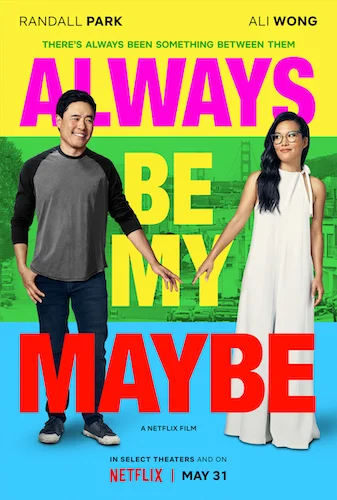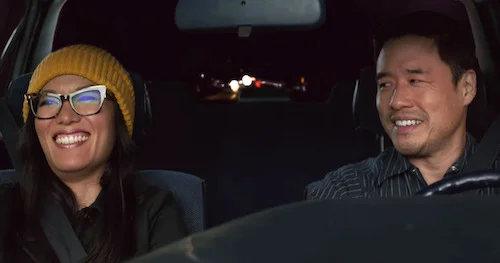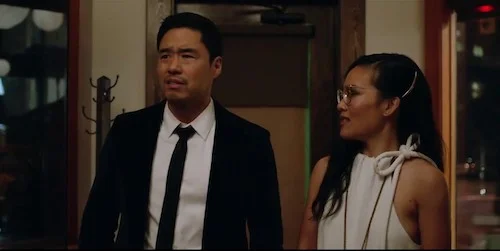Always Be My Maybe
In a number of ways, Nahnatchka Khan’s Always Be My Maybe is an important film. Its primary Asian-American cast and crew allows for a different take on a common narrative mold: the love that slipped away. Here, we see two life long friends that both allow an awkward encounter between the two of them jeopardize their history together. Sixteen years pass, and they are both at two different areas of the world. Sasha (Ali Wong) has become a world famous celebrity chef, that is even opening her own coveted restaurants. Marcus (Randall Park) is a blue collar worker (an air conditioning systems installer), who stays at home with his dad, smokes weed, and plays in a local band. Always Be My Maybe paints a delicate picture, when the motives of these characters are brought up. Has Sasha abandoned her culture with her cuisine? Has Marcus allowed the world around him to convince him he will never amount to anything better?
As a love story, this is a sweet one, folks. The plot points may be very common now that we are well beyond one hundred years past the dawning of cinema (and however many countless years of theatre, or even novels). However, it’s how these moments resonate that count. The film plays with the idea of the “maybe” throughout. It’s a little bit different than what the rom com classic When Harry Met Sally gave us, where most of the film is a “will they, or won’t they?” scenario. Here, they already tried when they were younger. It didn’t work out. Nearly twenty years later, there are still open wounds. Perhaps there were wounds that Sasha and Marcus had that they didn’t even know about well before the incident. That’s one of Maybe’s strongest aspects. It enjoys the grey area.
Sasha and Marcus reconnecting many years later.
As endearing as this all is, I kind of wish this story was more of a Sasha than a Marcus. What I mean by that, is that Marcus is painted as a guy that is afraid of stepping into the unknown, even after the encouragement of others. Sasha continuously looks for the next big change, perhaps because her parents were rarely in the picture when she was a kid. Applying this to the film, we get something a bit safe despite the huge amounts of promise. Maybe dips into a lot of conventional ‘10s decade types of humour. We have the celebrity cameo (I won’t spoil who it is, and I definitely think they were a scene stealer regardless). We have the fine dining disaster (this time, it’s a super expensive restaurant that serves food with audio clips of how they were raised and butchered fed through headphones to you as you eat, amongst other things). Cringe scenarios galore.
This also feeds into the actual story elements, where some plot threads just vanish. It’s a short film, but it was decades (in film decades) in the making. There is a lot of history, here. Important faces can’t just kind of disappear without some proper closure. Sure, we can keep the passable explanations that we have now, but this is a film about focusing on the one door that should have never closed: the other doors matter to this story, too. Proper closure (or even door slamming) make more sense than walking through, forgetting if you closed the door or not, and not really caring as you walk forward.
Marcus and Sasha facing their fears together.
Otherwise, Maybe is very touching and true to its heart. If you’re looking for a romantic dramedy that hits your funny bone and your feels, then you are reading the right article. While it may not rewrite the romcom formula too greatly, it is a solid representation of a different voice within the genre. In a generation where we were kids before the internet and adults with social media, Maybe makes a lot of sense. It’s hard to push away people we actually care about when Facebook suggests these people to us frantically. The world is so smushed together. It’s hard enough to run into people you really don’t care about, let alone the ones you pretend not to care about (out of spite). Thus, Maybe exists, and it’s a nice Sunday evening film to wind down to for all.
Andreas Babiolakis has a Masters degree in Film and Photography Preservation and Collections management from Ryerson University, as well as a Bachelors degree in Cinema Studies from York University. His favourite times of year are the Criterion Collection flash sales and the annual Toronto International Film Festival.






